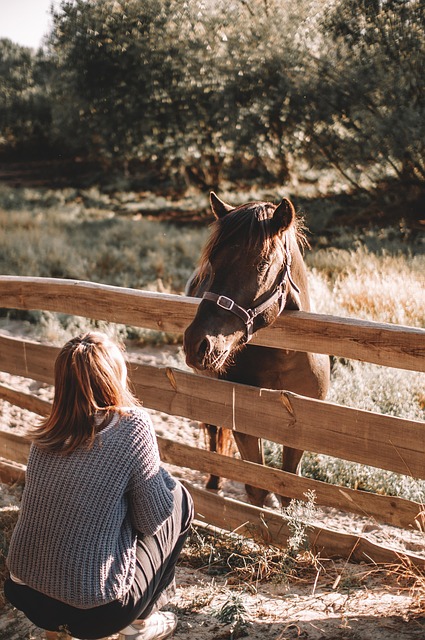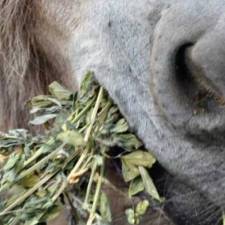
Do you call your horse's name when you enter the barn? Does your horse nicker back? Do you talk to your horse while grooming or riding? Does your horse seem to understand?
People talk to their horses for a variety of reasons, and the question of whether horses "understand" is a fascinating one that touches on animal behavior, psychology, and the human-animal bond.
Why People Talk to Horses
Building a Bond: A lot of the communication we have with our horses is about building and strengthening our relationship. Talking to a horse can be a way of showing affection, building trust, and simply enjoying their company. It creates a sense of partnership and companionship, similar to how we talk to our dogs or other pets.
Rhythm and Tone: The human voice has a huge impact on a horse's mood and state of mind. A calm, soothing voice can help a nervous or anxious horse relax. A gentle, upbeat tone can signal encouragement. This is often used during training, grooming, or just when walking a horse to the pasture.
Instruction and Training:
Many riders and trainers use verbal cues to reinforce their physical aids. For example, saying "walk" or "trot" can be a way of signaling to the horse what gait you want. While the horse may not understand the dictionary definition of the word, they learn to associate the sound of the word with the action they are being asked to perform.Emotional Expression: Horses are very sensitive to our emotions, and talking to them can be a way for us to express our feelings. It can be a way to vent after a hard day, celebrate a good ride, or just share a quiet moment. This is a form of self-soothing for us, which in turn helps us to be better partners to our horses.
Do Horses Understand?
The short answer is no, horses don't understand human language in the same way we do. They don't know the meaning of words like "beautiful" or "hungry." However, they are incredibly perceptive and learn to understand the context, tone, and rhythm of our voices.
Here's a breakdown of what horses likely understand.
Tone of Voice: This is the most crucial part. Horses are masters at reading emotions and intentions through subtle cues. A high-pitched, excited voice might signal that it's time for treats or play, while a low, calm voice might be a signal to relax. A sharp, loud voice would likely be interpreted as a command or a warning.
Associative Learning: Horses are excellent at connecting sounds with actions. If you always say "whoa" when you want them to stop, they will learn to associate the sound of that word with the action of stopping. The word itself doesn't have meaning, but the horse has learned through repetition that the sound "whoa" means "stop." This is similar to how a dog learns to "sit" or "stay."
Body Language: Horses are also experts at reading our body language. They often use our nonverbal cues (e.g., our posture, facial expressions, and movements) in combination with our voice to understand what we're trying to communicate. A rider might say "trot" while also giving a subtle cue with their legs. The horse will respond to the combination of these signals.
In conclusion, talking to horses is a natural and important part of the human-horse relationship. While they don't understand our language, they are highly sensitive to our tone, body language, and the sounds we make. This allows them to "understand" our intentions and connect with us on a very deep level.
You can find more informative articles in our section on Recreation & Lifestyle. Take a look at our Curated Amazon Store for our selections in a wide variety of categories!















































